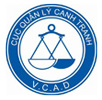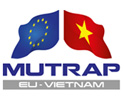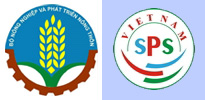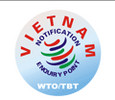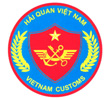
Vietnam's rice industry is facing both opportunities and challenges in the context of global food chain fluctuations. Many people think that rice exports are benefiting in terms of prices and markets, but we should not forget the issue of ensuring domestic food security, especially maintaining quality so that Vietnamese rice grains can be raised to new heights.
Food fluctuations in the world, rice prices dance
The issue of food security in the world began to heat up when India stopped exporting some types of ordinary rice. Then Russia withdrew from the Black Sea Grains Initiative Agreement, which pushed up world food prices. In addition, some countries also have orders to limit the export of other foods and foods to prevent shortages. Along with that, the reappearance of the El Nino weather phenomenon, typically with high temperatures and drought, causes a decrease in production or crop failure for foods such as rice, wheat, maize or other crops.
Fluctuations from the weather situation as well as new agreements and policies from other countries have had a strong impact on the rice market. The price of rice also "fluctuate" along. For Vietnamese enterprises, this is a good opportunity to establish a new ground in price, but there are certain precautions to minimize risks.
Mr. Nguyen Van Thanh, Director of Phuoc Thanh IV Production - Trading Co., Ltd., said that in the past few days, many customers have asked to buy rice, but because the price is constantly adjusted, businesses do not dare to sign a contract. If the contract is signed tomorrow, the price will increase again, it will be difficult to buy. Besides the customers asking to buy rice, there are also many customers asking to inquire about the price. Most of the customers asking to buy are from the Philippines, the Middle East…
"After India banned the export of long-grain white rice, not only Vietnam but also markets around the world increased prices, especially many countries are facing difficulties in food security" - Mr. Thanh said and further information, in Vietnam, the supply of rice for the domestic market is still guaranteed, but to meet the signed export orders, the domestic rice price has also increased very quickly. In just two weeks, the price of rice has increased by about 1,500 VND/kg.
Mr. Nguyen Van Thanh said that currently, businesses that have inventory will benefit, but businesses that have signed a contract before but no longer have inventory and have to buy more to supply will be greatly affected by the lack of inventory they have to buy at a higher price than the signed price. Because normally with signed contracts, businesses only calculate the difference from 200-300 dong, but now it has exceeded 1,500-1,800 dong, which is a big loss.
Mr. Pham Thai Binh, General Director of Trung An Hi-tech Agriculture Company, said that Trung An Company sells rice in the high-quality segment, so the number of customers is relatively stable. But after India's rice export ban and recently Russia and UAE, the scarcity situation in the market increased, so customers will surely flock to Thailand and Vietnam, the two exporting countries rice exports a lot. But no matter how difficult the market situation is, Vietnam will only benefit from the right to choose customers, not being able to meet all orders from traders around the world. Because Vietnam cannot export 9 or 10 million tons of rice, because Vietnam's supply each year can only export 6-7 million tons.
Analyzing the issue of rice prices and contracts, Mr. Pham Thai Binh said that now the price of rice is increasing, the rice price of farmers has also increased sharply. For example, one day, businesses had to buy from 7,100 to 7,200 VND/kg. But Trung An offers 630-640 USD for 5% broken rice to customers but they have not bought yet. While with the price of rice 7,100 - 7,200, the price of rice must be at that level to be profitable.
“In my opinion, the issue of India's rice export ban is like the last straw for the market to 'tumble' to find supplies, but the problem is at what price. With a price of 630-640 USD for 5% rice, it is unlikely that customers have bought it. Even Vietnamese enterprises are very cautious in signing new orders, because in fact many Vietnamese enterprises are now worried about buying rice to pay off debts of previously signed contracts, "said Binh.
According to General Director Trung An, the new contract did not dare to sign because the supply of Vietnam was also limited, the summer-autumn crop was harvested only about 1/3, the third crop is not much. No matter how much the world orders, Vietnam cannot export eight million tons of rice.
Mr. Phan Van Co, Marketing Director of Vrice Co., Ltd. also said that in the past few days, old customers have increased their purchases to keep their goods until the end of the year, accordingly, the company signed more but adjusted the price to increase 10- 15% or at market price. New customers also asked a lot but the company did not accept. Most of the customers who buy white rice from India have turned to ask to buy rice from Vietnam, but Vietnam's white rice is currently few, so businesses do not accept contracts. Other rice sources are abundant.
“Currently Vrice is selling Jasmine rice for $680/ton, Japanese rice for $750/ton. The company's inventory is small, about 3,000 tons, the company needs to buy more for export at the end of the year. However, because the price is currently high, the company will not buy at the moment but monitor more", Mr. Phan Van Co information.
Guaranteed food security
Market volatility increased, countries increased their food purchases, so they could not be subjective about domestic food security. Recently, to "remind" rice production and business enterprises and the Vietnam Food Association (VFA) to strictly implement regulations on rice export business according to Decree No. On August 15, 2018 of the Government on rice export business, the Ministry of Industry and Trade has requested regular units to maintain the minimum circulating reserve level as prescribed in Decree No. 107/2018/ND-CP, ensure the balance of exports and domestic consumption, contributing to stabilizing the prices of paddy and rice in the domestic market. In addition, report on the situation of paddy and rice stocks; Contract signing and performance of rice export contracts according to the provisions of Decree No. 107/2018/ND-CP above.
At the same time, actively monitor the situation of the global rice trade market, promptly report to the Ministry of Industry and Trade and the Ministry of Agriculture and Rural Development on the situation related to rice export activities in the domestic market and international; propose solutions suitable to relevant ministries and branches.
In this regard, Mr. Pham Thai Binh said that Vietnam will certainly never lack rice, never lose food security. Because for 25 consecutive years, Vietnam has exported from six to seven million tons to ensure the price of rice for farmers to reproduce for the crop. If we do not exporte, the price of rice will drop immediately and the Government has to rescue the people.
Mr. Phan Van Co said that it is forecasted that the export price of rice will continue to be high until the end of September 2023. After India re-signs Government contracts with importing countries, prices will drop again. “Currently, the Indian government is trying to stabilize the domestic market, but maybe after two to three months, it will consider exporting again, because the harvest season will come, it is impossible to keep inventories for too long. The price of rice will probably increase by 15-25 USD/ton," Mr. Co said.
According to Mr. Pham Thai Binh, the world trend of rice prices will increase, because many countries cannot overcome the food shortage situation. Facing that trend, Vietnam should have solutions to take advantage of opportunities instead of worrying about food insecurity. In addition to the issue of capacity, what should Vietnam do to make the best use of opportunities, that is, production must be associated with consumption, ie developing the rice industry in a sustainable way. For example, in the current situation, farmers can take advantage of opportunities, but businesses may suffer losses because they have to buy high-priced rice to deliver previously signed rice export contracts at low prices. Therefore, it is necessary to make the connection between farmers and enterprises so that farmers' production is associated with consumption of enterprises.
Source: VCN
Keywords: Vietnamese rice, food, export, market, price



